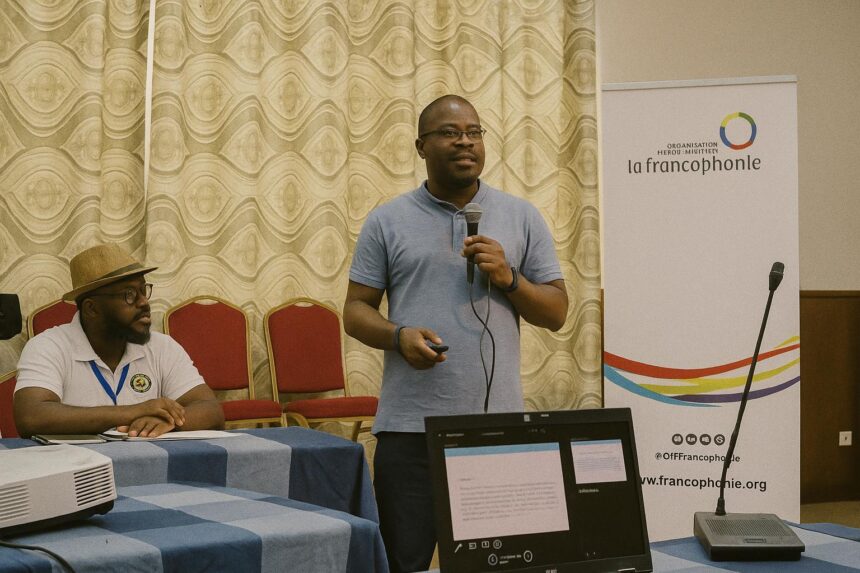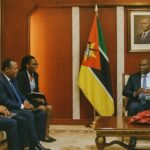Brazzaville’s festival spotlight and diplomatic overtones
On a humid July afternoon beside the languid Congo River, the wide boulevards leading to the Palais des Congrès pulsed with the polyrhythms of the twelfth Pan-African Music Festival. The gathering, a signature event endorsed by President Denis Sassou Nguesso since its inception, provided an apt backdrop for the International Organisation of La Francophonie’s announcement of two new funding envelopes dedicated to artistic mobility and digital discoverability. By coupling the launch with FESPAM, the OIF signalled a carefully choreographed convergence of cultural celebration and diplomacy, positioning Brazzaville as both host city and emblem of francophone creative ambition.
- Brazzaville’s festival spotlight and diplomatic overtones
- Francophonie grants as instruments of calibrated soft power
- Mobility scheme: bridges across continental and intercontinental stages
- Digital discoverability: from Brazzaville studios to global algorithms
- Local uptake: between enthusiasm and administrative bottlenecks
- Beyond the deadline: enduring stakes for Congo-Brazzaville
Francophonie grants as instruments of calibrated soft power
While the amounts—€150 000 for mobility and €300 000 for discoverability—may be modest in macro-economic terms, diplomats in attendance quickly recognised their symbolic resonance. For Paris, Quebec and the twenty-seven African member states of the OIF, cultural circulation remains a critical vector for reinforcing a shared linguistic space. In the words of an adviser to the Francophonie’s Secretary General, the grants constitute “a lever for inclusive growth and a counterweight to the centrifugal forces fragmenting the multilateral order” (OIF 2023 briefing). Such language underscores how artistic backing is increasingly framed as a geopolitical tool, cultivating allegiance to francophone norms in an era of multiplying alliances.
Mobility scheme: bridges across continental and intercontinental stages
The mobility fund targets individual artists and collectives with at least two years of professional activity in music, theatre, dance, cinema, literature, humour or the visual arts. Applicants may request up to €5 000 for travel and a supplementary €2 500 for the freight of instruments, costumes or cinematic equipment, a structure meant to lower the practical barriers that often stall cross-border tours. Similar programs administered in West Africa have demonstrated measurable impact on ticket revenues and peer-to-peer networking (UNESCO Creative Economy Report 2022), suggesting potential multiplier effects for Congolese troupes long eager to cross the Atlantic festival circuit. Government officials present quietly emphasised that efficient visa facilitation remains essential, a reminder that financial support must be paired with administrative nimbleness.
Digital discoverability: from Brazzaville studios to global algorithms
If the mobility scheme embraces the traditional romance of touring, the second fund looks squarely at twenty-first-century distribution. Up to €30 000 may be allocated to live performance promoters for expanded circuits, while as much as €50 000 is earmarked for platforms dedicated to metadata enrichment, recommendation tools and audience analytics. The OIF’s internal assessments indicate that francophone content often hovers below global algorithmic thresholds, receiving less than three percent of featured slots on major streaming services (OIF Digital Dashboard 2022). By nudging local ventures to refine cataloguing standards and strengthen user experience, the Organisation hopes to nudge Congo-Brazzaville’s rumba and hip-hop into curated playlists from Montreal to Marseille, thereby translating cultural capital into export revenue.
Local uptake: between enthusiasm and administrative bottlenecks
Despite the fanfare, statistical realities remain sobering. In the previous cycle of OIF cultural funding only two percent of approved dossiers originated from Congo-Brazzaville, compared with fifteen percent from Senegal (OIF Grant Statistics 2021). Kanel Engandja Ngoulou, programme coordinator and principal presenter in Brazzaville, lamented the disparity, but insisted that “the talent pipeline is unmistakably present; the paperwork pipeline must now catch up.” Delegates from the Ministry of Culture echoed the sentiment, pledging to circulate guideline templates through regional arts councils. Several producers interviewed on the festival’s margins cited the capacity to co-finance the mandatory twenty percent of project budgets as a persistent hurdle, although a new partnership programme with the national development bank may soon provide bridging loans, according to a senior Treasury source.
Beyond the deadline: enduring stakes for Congo-Brazzaville
When the August deadline passes, a broader calculus will begin. Should Congolese creators secure an increased share of allocations, Brazzaville could enhance its standing as a rhythmic nerve centre for Central Africa, complementing the government’s existing efforts to brand the capital as a continental conference hub. Success would also feed into the Republic’s cultural diplomacy strategy that seeks diversified partnerships across the Francophonie, the African Union and emerging South-South circuits. Even partial gains could reinforce the domestic creative economy, where the World Bank estimates that every job in the cultural sector generates 1.5 indirect jobs in ancillary services (World Bank Cultural Employment Study 2020). With cautious optimism and a pronounced emphasis on accountability, the new OIF funds thus open an instructive test case for harnessing artistic endeavour as both economic stimulus and diplomatic language.


















